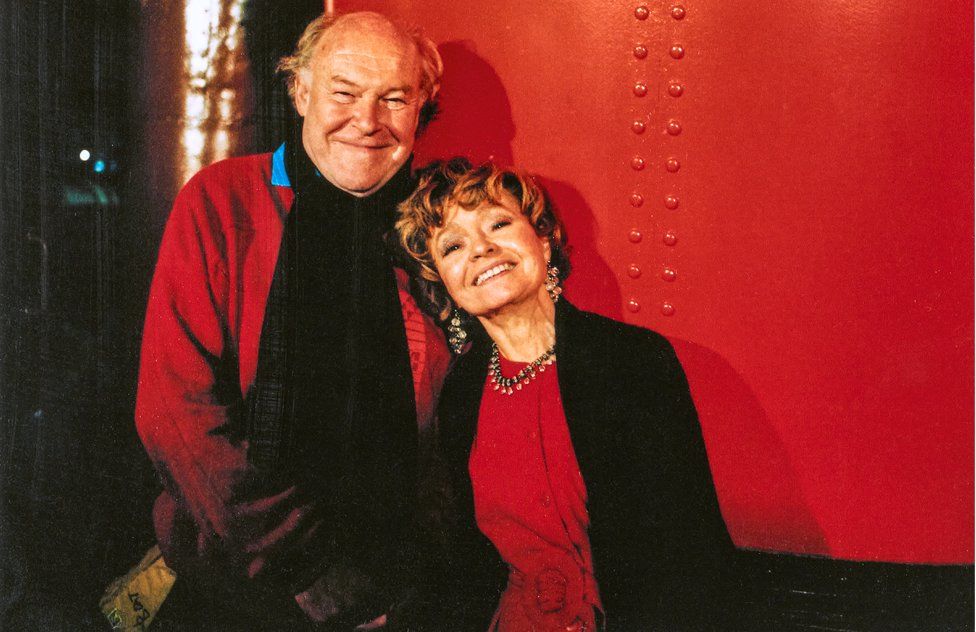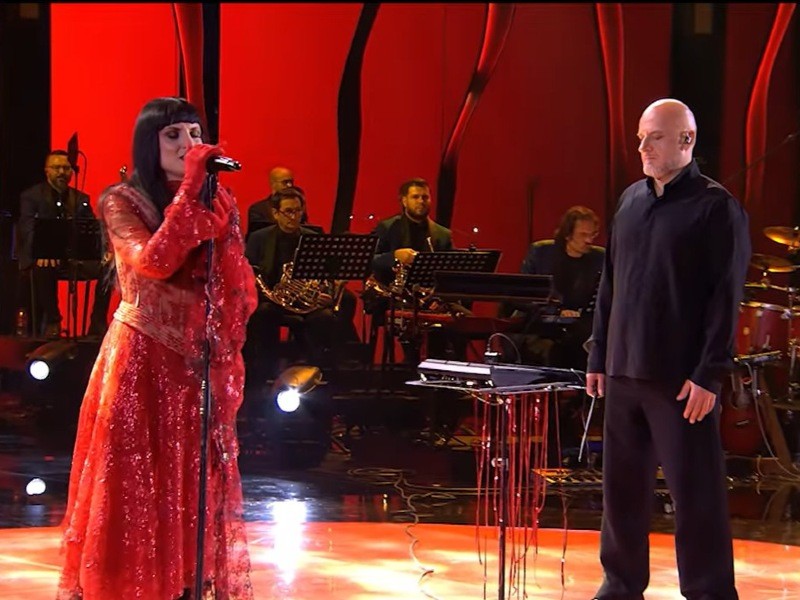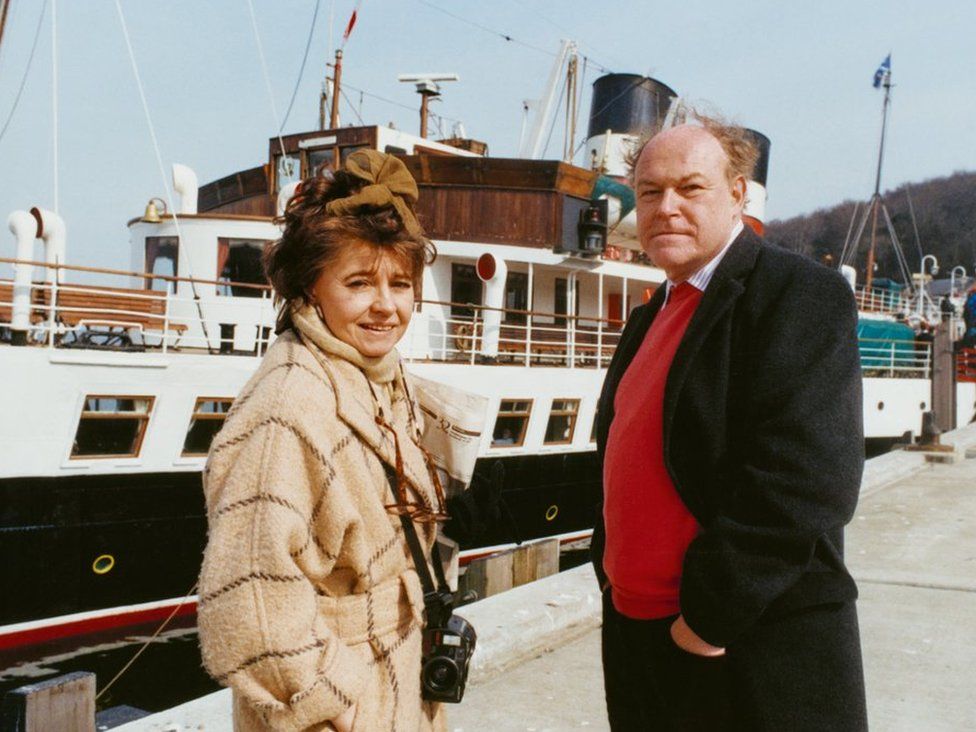
Prunella Scales and Timothy West’s downstairs toilet has everything you could possibly hope for from a celebrity couple.
There are framed copies of appearances on Radio Times covers (Fawlty Towers for her, a role as Winston Churchill in a TV film for him), and awards for audiobook narration of the year (the unabridged version of EF Benson’s class-struggle classic Lucia’s Progress did particularly well in 1993, apparently).
Plus, on a shelf, a guide to Britain’s canal networks, which on its own would have given an almighty clue as to who lives in a house like this.
For more than 50 years, perched on the north side of London’s Wandsworth Common, this has been the family home for two of the best-known names in British acting.
Scales will forever be most closely identified with the domineering and long-suffering comedy creation Sybil Fawlty in Fawlty Towers, best defined by one bark of “Basil”.
West is regarded as one of the great stage actors of his generation, having played King Lear four times in four different decades.
Together, over the last decade, they have had an unlikely hit with Channel 4’s Great Canal Journeys.
“We didn’t start out thinking it was going to be an especially exciting performance for people to watch,” admits West, sitting down beside his wife on a sofa in their front room for an interview with BBC Breakfast.
But for 10 series, they made canals captivating. “We were good at it,” he smiles.
Diamond geezers
All around their house are ever-so-slightly deflating helium balloons, a concoction of cards and flowers from well-wishers just about to go on the turn.
These are remnants from their recent 60th wedding anniversary, a feat so remarkable that any couple which reaches that landmark qualifies for a letter of congratulations from the King. Sadly, in their case none was delivered.
“Well he’s very new isn’t he?” jokes West. “He will remember, I’m sure.” (It later transpires that letters are not sent automatically, but family members can request them.)
The couple had no party as such. Instead, friends and family popped in to say hello, but a big part of their celebrations was the release of a book written by West, Pru & Me: A Love Story, looking back over their six decades of marriage.
A diamond anniversary is almost unheard of in showbiz circles. Nicolas Cage, Drew Barrymore and Eddie Murphy all had marriages that failed to last 60 days, let alone 60 years. Britney Spears had a marriage that did not last 60 hours.
“I like writing things down when they seem important, and this did seem important,” West explains.
“We’ve realised we’ve had an enormous amount of enjoyment, excitement, and pleasure. And that is worth writing down.”
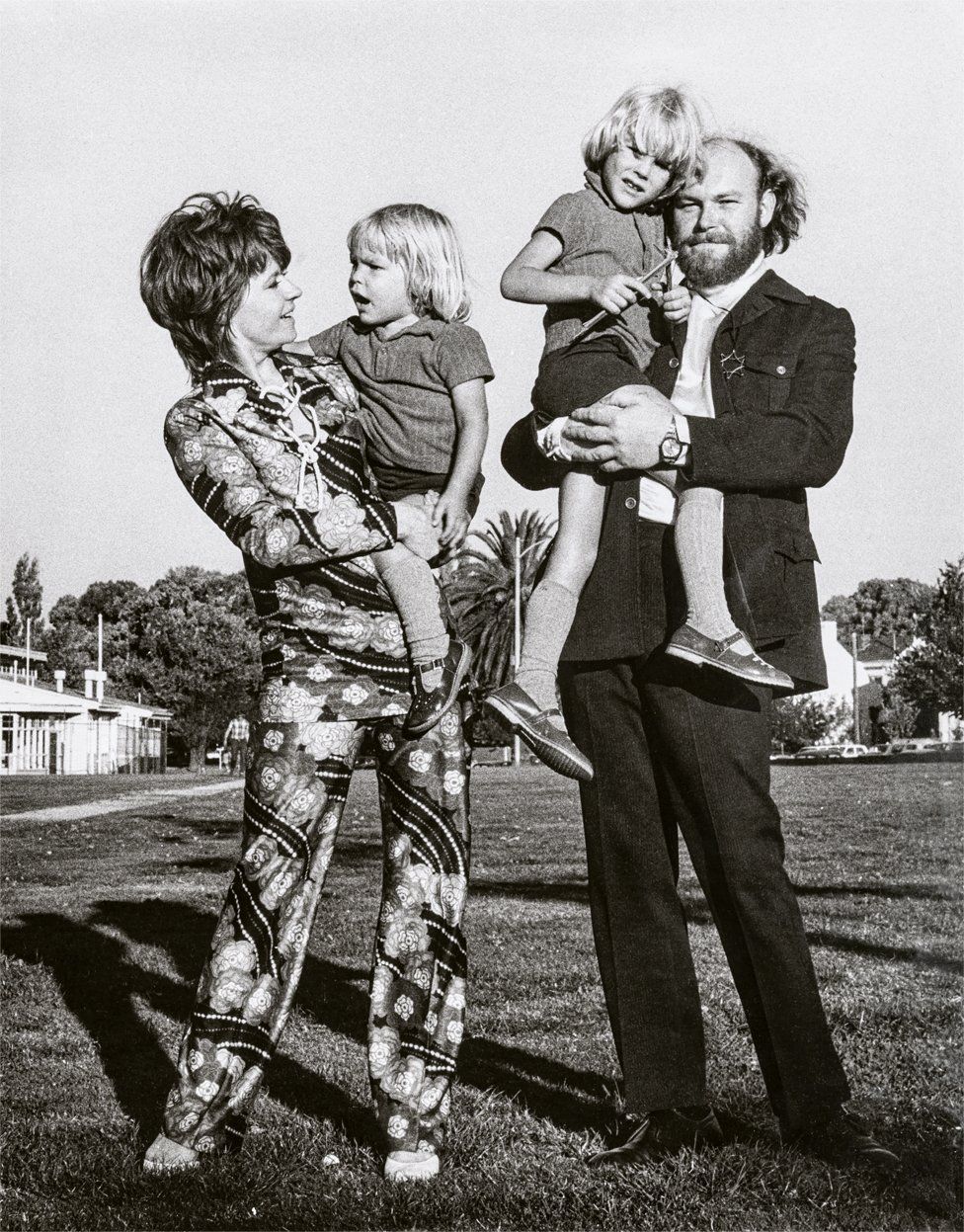
The book may mainly focus on the fun, but it does not shy away from discussing the vascular dementia Scales has had for more than 20 years – over a third of their married life.
“People know about it, so you can’t really ignore it,” says West holding his wife’s hand.
“It has been something which we bear in mind all of the time, really. It’s just something you have to think of. People understand and are very helpful and sympathetic about it.
“Somehow we have coped with it and Pru doesn’t really think about it.”
“What about?” interjects Scales.
“Well, there you are,” says West, gesturing towards his wife.
“What don’t I think about?” enquires Scales again.
“Dementia,” he explains.
“Dementia?” she asks quizzically, before letting a blow of air out of her mouth, seemingly in indignation.
“You are not bothered by it?” West gently asks.
“Well I think elderly people get it anyway don’t they?” Scales answers.
“Well some do,” muses West softly, before turning back, looking me in the eyes and emphatically adding: “We manage.”
The first signs
It was as long ago as 2001 when West first noticed something was not entirely right with his wife. He had been to see her in the opening night of a play in Greenwich where everything had gone well.
However, when he returned later in the run: “I thought, ‘Pru’s a bit strange. Not totally with it.’ It wouldn’t have bothered any ordinary member of the audience, but I knew that she had just not quite been on top of it.”
It was more than a decade later, in 2014, that a diagnosis of vascular dementia was officially made. West remembers every word of that life-changing appointment: “We went to see a specialist who said, ‘Sorry this is just something which happens to you when you are older and it’s not going to get any easier, but you can cope with it. Don’t let it get you down.'”
They both took this advice on board. Literally. That year they would embark on what would turn into 10 series of Great Canal Journeys. A huge contributing factor to the show’s popularity was their honesty about Scales’s health.
In 2016, the Guardian’s Stuart Heritage described it as “a work about a devoted couple facing something huge together”.
“Every episode tends to show a glimpse of what Prunella finds herself up against,” he wrote. “She’ll make a small mistake or forget the name of a place or get caught on camera looking slightly lost and uncertain, and West will carefully guide her back to his side.”
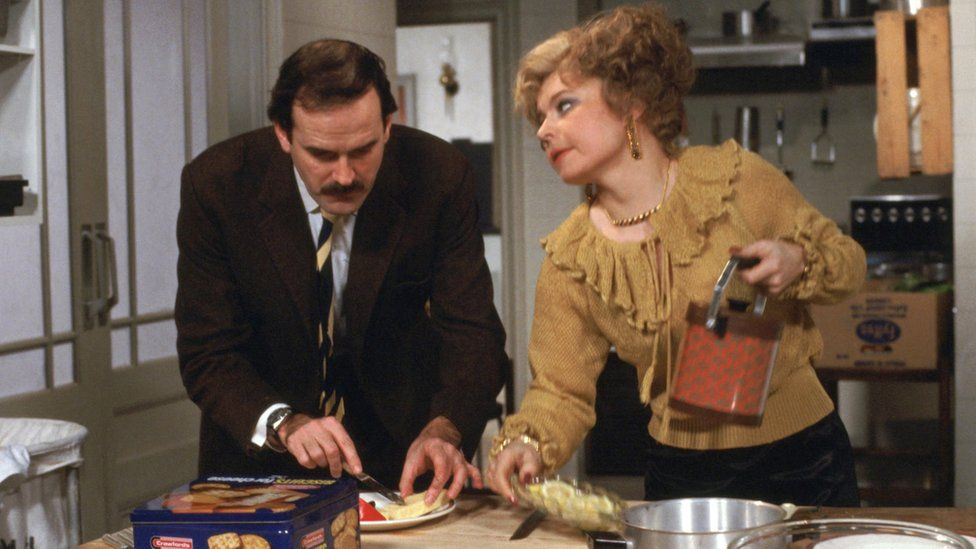
I ask them what strategies they put in place after the dementia diagnosis.
“It’s very important what we do together,” explains West, who lists visits to the theatre and galleries as their favourite activities.
“We remember and are conscious of how much we are helping each other to continue in our lives,” he expands, acknowledging that while he is his wife’s primary carer, he is also very reliant on her.
Scales is very clear about what first made her fall in love with West, after they met in 1961 while making what they both describe as a “terrible play” for the BBC called She Died Young.
“He writes lovely letters. Marvellous letters,” she says. “And when we were first together that was one of the things that fascinated me about him. Funny and interesting.”
“We both loved writing to each other,” West picks up. “Sometimes two or three times a day.”
“Three times a day!” I blurt out in horror at my own comparative inadequacies on the romantic postal front.
Most importantly, though, what is clear is that the core of their relationship has not altered since the dementia diagnosis.
“I don’t think it has changed at all,” says West with complete assuredness.
“No. No. No,” jumps in Scales to back him up. “I’ve got to know him better and better and better.”
West takes a moment to think and reflect before adding: “I know that things are going to change a little bit, but it’s been a long time and we’ve managed pretty well really. I don’t think we ever think, ‘Oh no’.”
And without dropping a beat, Scales immediately joins in with: “No I don’t. Not ever.
“I’ve been asked to live the rest of my life with somebody I respect very much, and I quite admire and agree with about a lot of things. And argue with about a lot of things quite happily.”
They turn and smile at each other. At this point I may have got a speck of dust behind my contact lens.
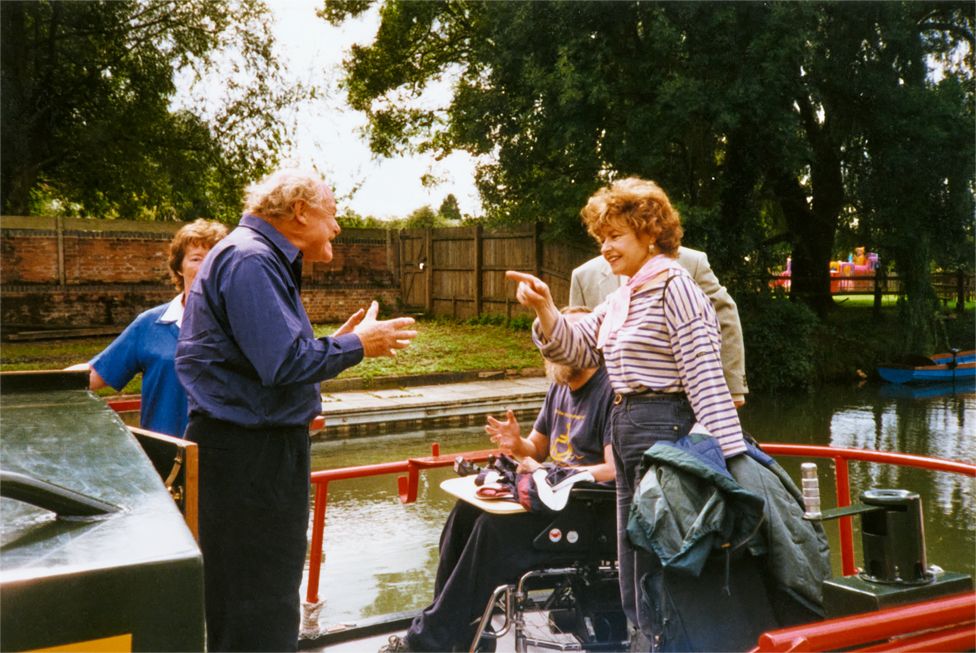
All that is left is to wish them a happy anniversary and ask them both what it feels like to be celebrating 60 years of marriage.
“How does it feel to you?” asks West turning to his wife.
“What am I supposed to say?” Scales asks.
She takes a few seconds to think, before leaning towards her husband, pausing to say, “Thank you”, and then kissing him on the cheek.
“Well thank you,” replies West, looking very happy.
“Thanking for sticking with me for so long,” continues Scales.
“Well, we’ve done all right,” concludes West.
“It hasn’t really been hard work, has it?” he asks.
“No!” enthuses Scales. “He’s a person I like, I love, I enjoy being with.”
There is a silence, before West sums up 60 years of marriage by acknowledging her comment with a simple: “That’s about it, I think.”
Interview over, the cameraman goes over to Scales and asks if he can take the clip microphone off her.
“Oh good,” she goes, a twinkle appearing in her eye.
“Now I can say…”
And out of her mouth comes a four-letter word completely unsuitable for broadcast on BBC Breakfast.
We all roar with laughter.
This is a household that refuses to be diminished by dementia.
Pru and Me: The Amazing Marriage of Prunella Scales and Timothy West, published by Penguin Michael Joseph, is out now.
